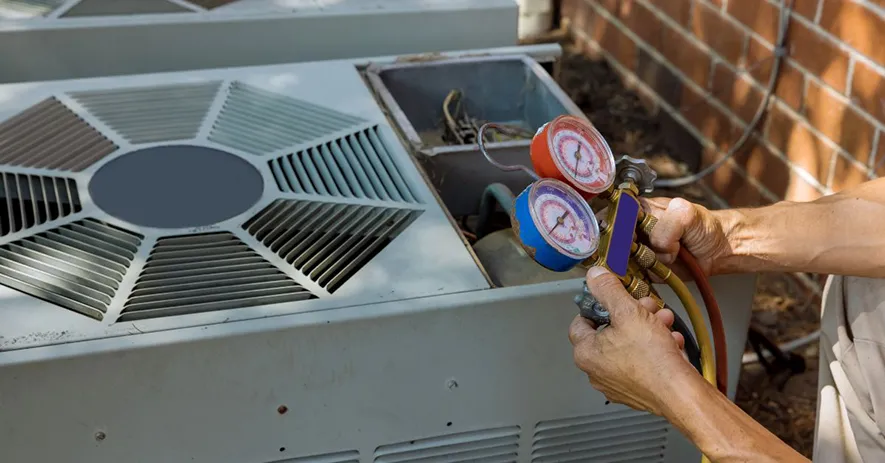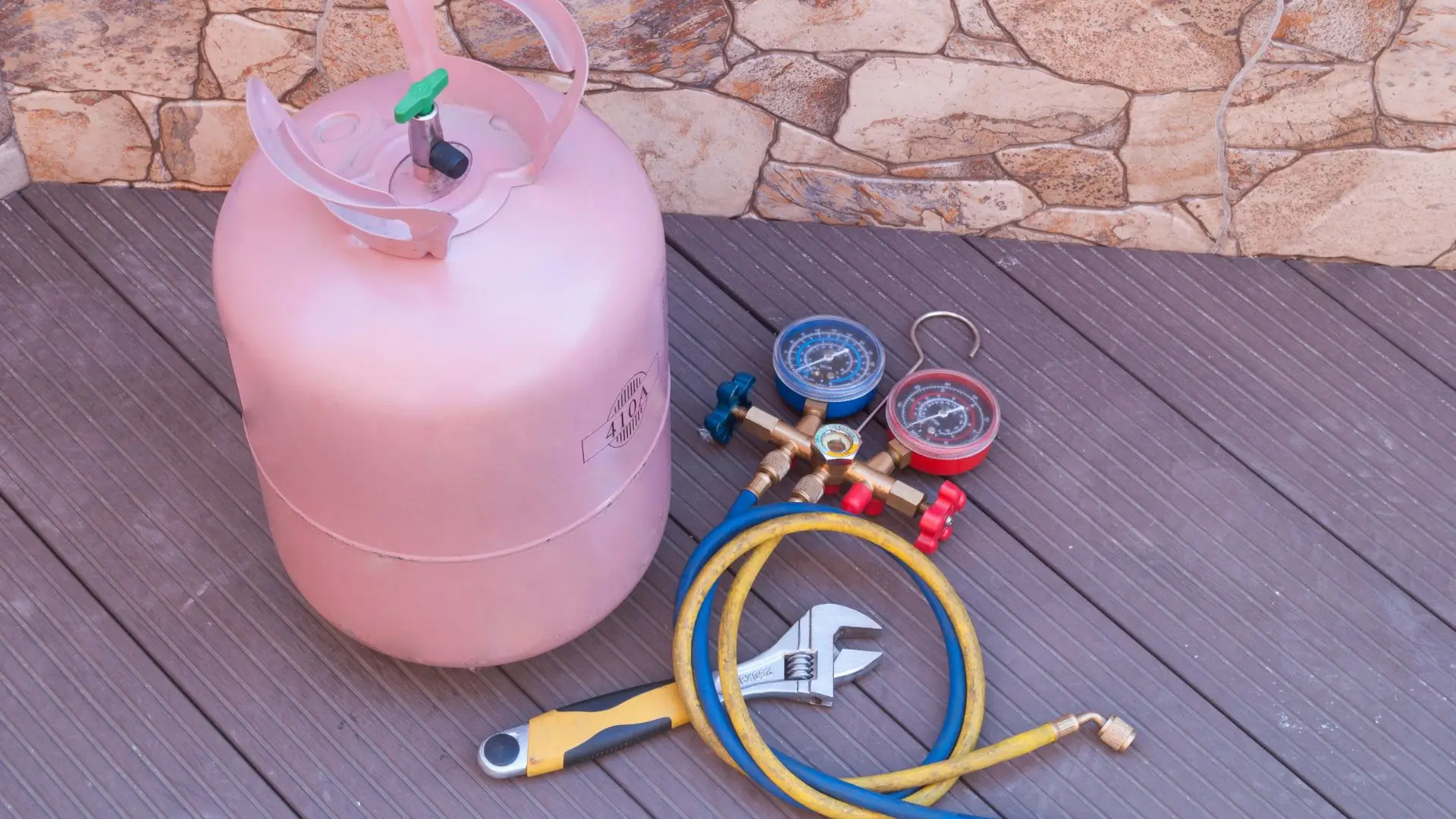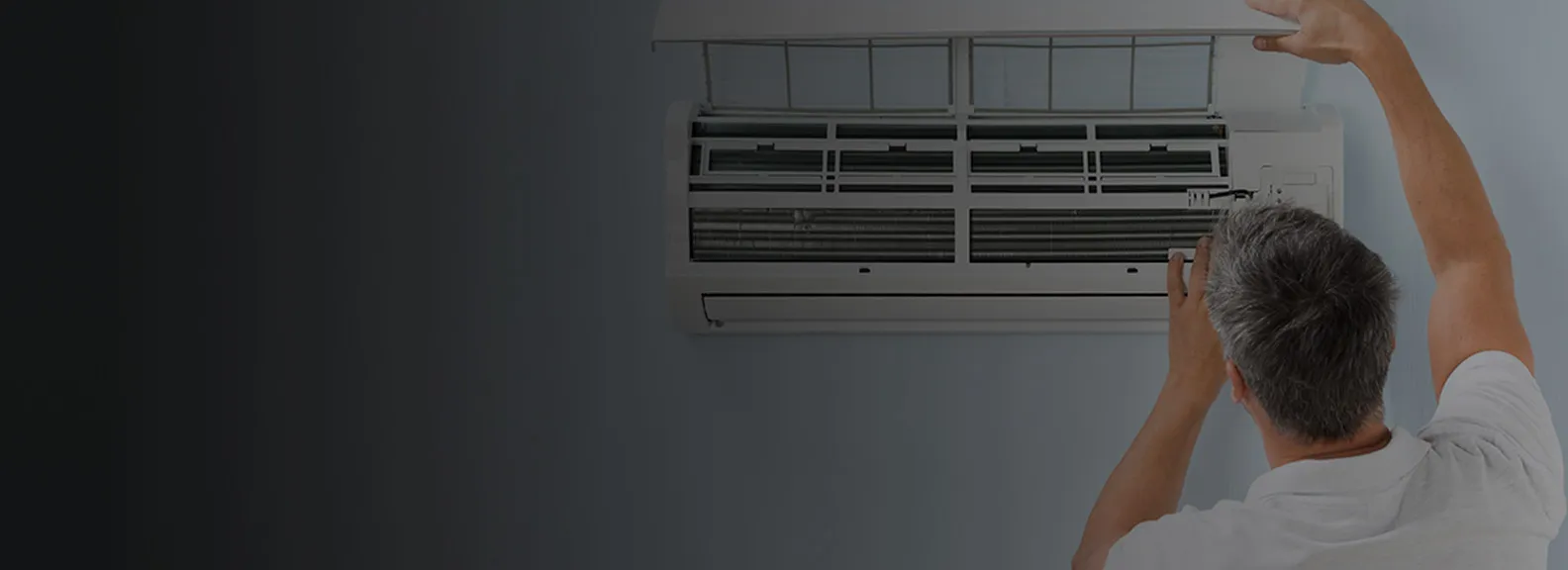If a chronic onset of seasonal allergies occurs outside of allergy season, you might want to look into your air conditioner.
If you opened up your search engine and typed "air conditioner allergy problems", you might be surprised by the results. The amount of studies related to it is fairly plentiful.
An air conditioning system causing an allergic reaction isn't unheard of, with more details about the effects of indoor air pollution coming to light.
If you have difficulty breathing or are experiencing other allergy symptoms, your air conditioner might be the culprit.
What Role Does Your Air Conditioning System Play in Triggering Your Allergies?
An air conditioner has components that effectively filter out common indoor allergens.
However, its poor maintenance might inhibit sufficient filtration and leave airborne pollutants within your living space air circulating freely.
Air conditioner filters screen outdoor allergens before indoor distribution. Air filters can build up air contaminants. It can become the breeding ground for airborne bacteria and other pollutants.
Without cleaning your air filters regularly, the air inside your home might be congested with airborne contaminants. More than the flowers in bloom outside, indoor air pollution is more culpable in triggering allergic reactions.
What's Triggering Your Allergies?
Airborne contaminants caught in an air filter greatly affect your indoor air quality.
Here are some of the most common contaminants found within dirty filters:
- Pet dander
- Pollen
- Dust mites
- Dust
- Human skin
- Mold and mildew
- Microscopic particles
- Other debris
Your allergy symptoms might be thanks to air conditioners and air purifiers distributing contaminated air.
In warmer states like Oregon, mold spores bring more health risks than allergies in more humid conditions.
Common Indoor Allergens That Affect Your Home's Air Quality
Airborne pollutants don't just originate outside.
While pollen and other allergens can come from outside, our daily habits at home can generate their own indoor pollutants.
Without air filters to extract contaminants, we can suffocate indoors before we know it.
It's a good idea to open doors or open windows the next time you cook. The smoke your cooking is producing may heighten the presence of Volatile Organic Compounds (VOC) in your home.
Volatile Organic Compounds
VOC are typically artificial chemicals. They include chemical compounds found in household gasses. Cooking, barbecuing, and even lighting candles can release butanal, the most prominent type of VOC.
Increased exposure to VOC can lead to allergy-like symptoms and more serious diseases. While they pose a higher risk to allergy sufferers, they are a threat to us all.
It's not everything you need to worry about. More allergy-inducing things are waiting for you indoors.
Pollen
Pollen comes from trees and flowers outside, but opening windows and doors can bring them into your living space.
Some of us also like having flowers in our homes. Whether as decorative features or something the husband brought home from work, flowers are a staple in many households.
Once inside, the pollen from all flowers, except for dried ones, is released into the air. It can easily penetrate or be picked up by your air conditioning system.
Dust Mites
Dust mites can come from outside and inside.
They are naturally occurring organisms that thrive in damp conditions, also known as your home when humidity levels are higher, during muggy weather in July.
They absorb moisture, and a dirty air filter is a prime breeding ground for their infestation. Dust mites don't just trigger allergies in the form of a runny nose. An asthma attack can arise from the presence of dust mites in your air conditioners.
Mold and Mildew
Mold and mildew often grow within air ducts.
They thrive in dark and damp conditions, making your air conditioners a habitable environment—especially air ducts, cooling coil, and condensate pan that aren't properly maintained.
Mold and mildew growing in your air conditioning unit can be more dangerous than your typical allergic reactions.
When you inhale mold spores, they can penetrate your lungs. The toxins released by the mold in your lungs can cause permanent or severe damage, such as lung cancer, pulmonary fibrosis (PF), and other related symptoms.
Even with dry air, mold spores can breed on wet surfaces. When there's enough moisture in the air, it can latch on to the airflow.
Air filters aren't immune to mold growth, but they help extract spores from the air to trap in their systems. HEPA filters are known to do this best, but it needs regular cleaning just like other air filters.
Mold breeds quickly, and it can infest air filters fast. Clean and proper filters can save you from severe allergic reactions or worse.
Mold in the air isn't just a risk to your health. It can latch on to things in your home and cause deterioration. You don't want it sticking around your air conditioning unit for longer than its filters can contain it.
Once it gets into more parts of your AC unit, it will be more costly to remedy.
Pet Dander
If you are an animal lover who sleeps with your pets, it's time to wean them off your bedroom floor.
Pet dander is a leading cause in air conditioners triggering allergic reactions. It can help if you have an air purifier, but it doesn't catch everything.
The more your pets shed and the less you clean, the more pet dander floats around your home, negatively impacting your air quality.
Dust
Add human skin cells, hair, fibers, microplastics, dirt, and other microscopic particles to everything listed above, and you get dust.
Everything that falls off you, your things, and your pets eventually turn into dust particles. While you might find them on the floor, they blow through your airspace. Dust primarily causes a stuffy nose, but too much for too long can result in more severe respiratory infections.
The air filters of an air conditioner or air purifier can get congested much faster by other air contaminants when they collect copious amounts of dust.
Opt for air filters with higher Minimum Efficiency Reporting values (MERY). They are better at dealing with microscopic particles that bypass other filtration systems. Still, it would be best to regularly clean out your air conditioning equipment, especially its air filters.
Air Conditioners and Filtration Systems
A dirty air filter houses various airborne allergens. It requires routine inspection and maintenance to prevent any further contamination. Please don't wait for alarming signals to arise before hiring a professional service to give it a thorough cleaning.
An air conditioner or any other HVAC system with HEPA filters is better at keeping allergy symptoms at bay. HEPA filters are a more thorough type of air filter that meticulously screens anything that goes into your air conditioning system.
The word conditioning in air conditioning stands for more than turning hot air into cold air. It includes proper filters and other critical components which help provide your home with clean, cool air.
Inside Your Heating and Cooling System
Inside your air conditioning unit, you will find different elements. Some are for filtering, some are for temperature control, and some help facilitates airflow.
Each plays a key role, and they can influence each other's performance ability.
The entire system depends on constant air exchange. An air conditioning system with a dirty or congested air filter can clog airflow.
If overflowing contaminants clog air ducts, your summers will get pretty heated. You might also be better off outside.
If you breathe in too many dust mites and pet dander, you can suffer from more than just an allergic reaction.
Routine Maintenance for Air Conditioning Units
Cleaning your windows and doors every time you can help. Still, there are more than just natural points of entry that need routine cleaning. Outside air carrying various pollutants enters your home through more than just open doors.
An AC unit facilitates more airflow than any other component in your home. Your HVAC system needs regular maintenance to ensure there aren't any underlying issues that may cause problems later.
It's best you don't settle for unreliable contractors. Your air conditioner's improper installation, repairs, and maintenance may cause worse issues.
Additionally, they may thrift on quality materials or replace the ones in your air conditioner with faulty ones. Even technicians with good intentions might have less experience and wreck your air conditioner or neglect to clean it as thoroughly as needed.
Stick to reliable, efficient, and transparent contractors who have your best interest as their top priority.
Sunset Heating and Cooling Electrical
Our experts have helped install and maintain air conditioning systems all over Oregon since 1922. For over one hundred years, we have gained the necessary expertise to discern and rectify homeowners' most common issues with air conditioning and overall air quality.
Our great service has garnered rave reviews in the form of loyal patrons and repeat customers. Our outstanding customer service is available for your concerns and inquiries at any time of day.
Visit our website to find out more and book your appointment online!







